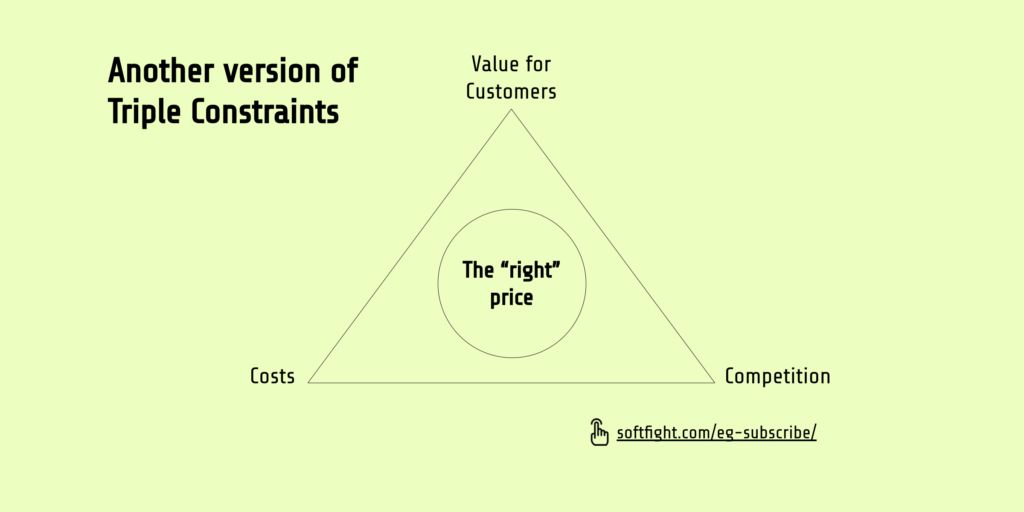This is the first of three articles I will write on this topic, for the next 3 weeks.
- How to think about your competition
- A process – how to track your competition
- A tool for your sales team
Competition for software services companies
If you are selling software development services, you might be feeling any of the following:
- I am competing with everyone else on the planet, anyone can do this with a laptop and an internet connection
- We are so special, our team / process / technical experience is so advanced, we are the only ones doing this
- What we are offering is a pure commodity, it’s difficult to see how we can differentiate
- We found our secret formula, no one else in the world can do this, we are unique
- and so on …
I for myself have been through this rollercoaster multiple times in the past 10 years.
One moment you feel that you can charge whatever you want because you are offering something unique.
The next day you find yourself gazing at a forest with thousands of trees that look exactly like you.
As with many things in life, the truth is somewhere in the middle.
When the competition matters. A lot
If you are offering your services in an undifferentiated way, with no clear target customer, with no special services, with no particular skills or expertise to set you apart from other similar companies, then competition matters.
The fewer reasons you give your potential clients to pick you, the higher the chances that you have to compete with the only element that you have left in your toolbox: price.
And this is something you don’t want, as there will always be someone who can do the same thing for a lower price. Meaning that you have to reduce your rates lower and lower just to stay in business.
This is the moment when it matters that there are tens of thousands of software services companies in the world, not to mention the hundreds of thousands of freelancers.
There might be a few situations where there is nothing you can do and the context of the project makes it that you have to compete on price with no way to use value as a sales argument.
However, my experiences taught me that if you feel that you have to compete on price on more than 20% of the proposals that you make for new projects, something is fundamentally broken in your business strategy.

How to make the competition irrelevant
By focusing on value for the customer.
The formula is pretty simple:
- the better you understand your customer’s problems, needs, desires, limitations and you use this knowledge to build a project proposal that solves them, the higher your chances of winning the project
- the more focused your strategy is on solving a limited number of problems for a limited number of types of companies, the higher chances you have to win projects with customers that have those problems
When you start from the value for the customer, multiple elements of your business model fall into place is a way that seems almost magical:
- in the sales process you can quickly recognize the issues your prospect is confronted with, because you have seen those problems with other customers before
- you can show a track record of successful projects, because you have solved the same problems for other customers in the past
- you can close deals faster, because you can reuse documents and templates in your sales process
- you can demonstrate value in a more effective way, because you have team members who have done similar projects in the past and can talk persuasively about their experiences
- you have the necessary skills in the team, because your recruitment and selection processes are well tuned for a limited number of skills and technologies
- you can deliver a high level of quality because your team members can build relevant experience over time, by working on the same type of problems, for similar clients and can grow in a healthy way
- when the quality level increases, you can charge higher prices, which means you can pay your team better, so you can attract the best talent
Once you do all these, you might realize that there is no competition.
In each project proposal you make, you might find yourself being the only ones that can answer 100% to what the customer is looking for.
This means you will have pricing power and a very good position for the contract negotiation.
WHAT THIS MEANS FOR YOU
Sometimes you have to worry about the competition and adjust your prices down.
But this should be the exception.
It’s much better to focus on the customers and what is valuable to them.
Next Monday, part 2:
A process – how to track your competition

